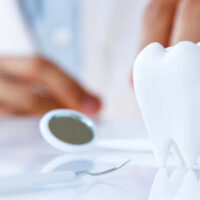Medicare Dental Benefits Leave Seniors in the Lurch

Medicare, the program that provides basic medical care services to American seniors free of charge, has existed since the early 1960s; the first people to receive Medicare benefits were former president Harry Truman and former first lady Bess Truman. A lot has changed since then. If you want to scare your grandchildren, or perhaps give them encouragement, tell them about what it was like to go to the dentist when you were a kid. Because fluoride treatments were not routine, children got a lot more cavities, so after surviving the horrors of the dentist’s drill, you would get an unsightly silver filling. Eventually, it would fall out, and you would have to go back to the dentist to get a new one, repeating your ordeal. Getting a root canal before age 30 was the rule, rather than the exception. Most of the adults you knew had a few false teeth, and some had a full set of dentures. Today, fluoride and sealants prevent many cavities, cavity removal is less invasive, and fillings are invisible except during dental exams. Artificial teeth are not smelly monstrosities that sit in a cup of water on the bathroom counter and terrify children who dare to step into the bathroom in the middle of the night; they are photogenic dental implants that look and feel a lot like real teeth. Despite all of these advances, today’s seniors need dental care, and Medicare is not especially generous about paying for it. For help planning for dental expenses and other aspects of your retirement budget, contact a Dade City estate planning lawyer.
Healthy Mouth, Healthy Body and Mind
Investing in dental care at all stages of life only makes sense. Oral bacteria play a role in many diseases of old age, from cardiovascular disease to age-related dementia. People fear the expense and pain of dentistry, especially if they have had bad experiences in the past, but procrastinating a visit to the dentist only makes the problems worse. One can hope that, since the young generation has grown up with routine dental care, they will need fewer dental interventions, but today’s adults should make an effort to care for their dental health, even though doing so is not cheap.
Medicare Only Covers Worst-Case Scenario Dental Interventions
Unfortunately, Medicare’s dental coverage is so meager that it encourages the dentistry-avoiding habits to which Baby Boomers are accustomed. It only pays for dental services directly related to other serious health conditions. For example, it will pay for the dental treatment required for you to receive clearance for heart valve surgery or an organ transplant, and for treatment of mouth infections that must be addressed before you begin chemotherapy. In other words, Medicare only pays for dental treatment for the sickest people.
Contact a Florida Estate Planning Attorney About Planning to Stay Healthy in Retirement
An estate planning attorney can help you plan to cover the medical expenses that Medicaid does not cover. Contact The Law Office of Laurie R. Chane in Dade City, Florida to discuss your estate plan.
Source:
medicare.gov/coverage/dental-services

